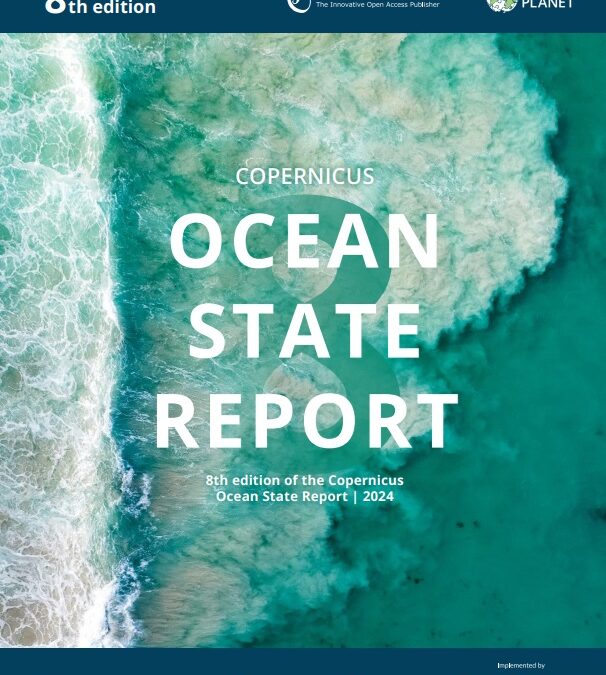Extreme and record-breaking events, such as marine heatwaves or extreme phytoplankton blooms, are described in the eighth edition of the Ocean State Report, the annual publication of the Copernicus Marine Service, implemented by Mercator Ocean International, which provides a global overview of ocean climate and ocean health.
OSR 8 analyses the state of the ocean over recent decades, with particular focus on 2022 and 2023, and offers a comprehensive picture of the current state, ongoing trends, and natural variations of the ocean. In addition to highlighting key findings, the summary presents a set of Ocean Monitoring Indicators, which track trends and variations in the changing ocean.
The report describes extreme events in Europe and worldwide, explains key ocean processes and their interaction with the global climate, and also highlights various innovations and technologies that help monitor the ocean.
Divided into three main sections—The State of the Ocean, Ocean-Climate Interactions, and Ocean & Society—OSR 8 is the result of a significant international scientific effort, involving more than 120 experts from institutions across Europe and around the world.
The findings undergo an independent peer-review process in collaboration with the scientific journal State of the Planet, and are supported by satellite observations, in situ measurements, and state-of-the-art computer modelling.
Specifically, according to the report, in the Mediterranean Sea, marine heatwaves in 2022 reached depths of up to 1,500 metres. While heatwaves were more frequent at the surface, higher and longer-lasting temperatures were observed below 150 metres.
Marine heatwaves can lead to species migration, ecosystem degradation, affecting commercial fish stocks, and consequently food security and the livelihoods of coastal populations.
OSR 8 describes new technologies that can help us better understand changes in the ocean and interact more responsibly with it.
One featured study, for example, shows the use of the Copernicus Marine Service’s Mediterranean Forecasting System to detect a record-breaking heatwave 10 days in advance, tracking its development from onset to decay.

